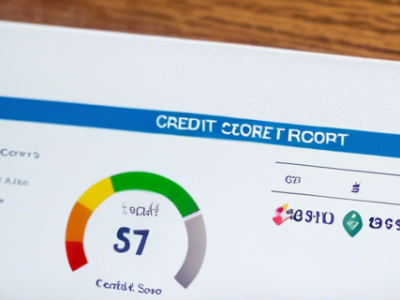Annuity vs 401k: Which is Right for You?

Introduction
Investing can be a daunting task, especially for those new to the world of finance. With so many options available, it’s easy to feel overwhelmed and unsure of where to start. Two popular investment vehicles that often come up in discussions are annuities and 401(k) plans. But what exactly are they, and which one is right for you? In this article, we’ll dive deep into the world of investing, exploring the ins and outs of annuities and 401(k) plans to help you make an informed decision.
What is an Annuity?
An annuity is a financial product that provides a stream of payments, typically for life or a specified period. It’s essentially a contract between you and an insurance company, where you make a lump-sum payment or a series of payments, and in return, the insurance company agrees to pay you a fixed or variable amount on a regular basis. Annuities are often touted as a way to secure a steady income during retirement, but they come with their own set of pros and cons.
Types of Annuities

There are several types of annuities, each with its own unique features and benefits. Here are some of the most common types:
- Fixed Annuity: This type of annuity offers a guaranteed rate of return, which means that your payments will remain the same throughout the life of the contract.
- Variable Annuity: With a variable annuity, your payments will fluctuate based on the performance of the underlying investment portfolio, which is typically made up of mutual funds.
- Immediate Annuity: As the name suggests, an immediate annuity starts paying out right away, making it a popular choice for those looking to supplement their retirement income.
- Deferred Annuity: In contrast to an immediate annuity, a deferred annuity allows you to make contributions over time, with payouts beginning at a later date, typically during retirement.
What is a 401(k) Plan?
A 401(k) plan is a retirement savings plan sponsored by an employer. It allows employees to contribute a portion of their pre-tax income toward their retirement savings, with the employer often matching a percentage of those contributions. The money contributed to a 401(k) plan is invested in a variety of funds, such as stocks, bonds, and mutual funds, with the goal of growing over time.
Benefits of a 401(k) Plan
One of the primary benefits of a 401(k) plan is the tax advantage it offers. Since contributions are made with pre-tax dollars, you won’t have to pay income tax on that money until you withdraw it during retirement. Additionally, many employers offer matching contributions, which is essentially free money toward your retirement savings.
Another advantage of a 401(k) plan is the potential for long-term growth. By investing consistently over time, your money has the opportunity to compound and grow significantly, providing you with a substantial nest egg for retirement.
Comparing Annuities and 401(k) Plans
Now that we have a basic understanding of annuities and 401(k) plans, let’s take a closer look at how they compare in various aspects.
Contributions and Investment Options

When it comes to contributions, 401(k) plans offer a bit more flexibility. With a 401(k), you can contribute a percentage of your pre-tax income up to a certain limit set by the IRS each year. This limit is typically higher than the contribution limits for annuities, allowing you to save more for retirement.
In terms of investment options, 401(k) plans typically offer a wide range of choices, including mutual funds, stocks, bonds, and other investment vehicles. This diversity allows you to construct a portfolio that aligns with your risk tolerance and investment goals. Annuities, on the other hand, tend to have more limited investment options, with many offering only fixed or variable rate returns.
Fees and Expenses
Both annuities and 401(k) plans come with fees and expenses, but the way they are structured can vary significantly. With a 401(k) plan, you’ll typically pay an administrative fee, as well as any fees associated with the specific investments you choose. These fees are generally lower than those of annuities, especially if your employer offers low-cost index funds or institutional share classes.
Annuities, on the other hand, can be more expensive. In addition to annual fees and mortality and expense risk charges, annuities often carry surrender charges if you withdraw your money within a certain time frame. These fees can eat into your returns and make annuities a less attractive option for some investors.
Liquidity and Access to Funds
One of the key differences between annuities and 401(k) plans lies in liquidity and access to your funds. With a 401(k) plan, you generally have more control over your money. You can make withdrawals (subject to taxes and potential penalties if you’re under age 59 1/2), roll over your funds to another retirement account, or even take out a loan against your balance in some cases.
Annuities, on the other hand, are designed to be long-term investments, and accessing your funds early can be costly. Early withdrawals from an annuity often result in surrender charges, and you may also face tax penalties if you withdraw funds before age 59 1/2.
Income Options
When it comes to generating income during retirement, annuities and 401(k) plans offer different approaches.
With an annuity, you have the option to convert your lump sum into a stream of guaranteed income payments for life or a specified period. This can provide peace of mind knowing that you’ll have a steady source of income, regardless of market conditions or how long you live.
A 401(k) plan, on the other hand, doesn’t offer a guaranteed income stream. Instead, you’ll need to develop a withdrawal strategy that allows you to tap into your savings while ensuring that your money lasts throughout retirement. This can be more challenging, as you’ll need to account for factors like market volatility, inflation, and your expected longevity.
H2: Factors to Consider When Choosing Between an Annuity and a 401(k)
Now that we’ve explored the key differences between annuities and 401(k) plans, let’s take a look at some factors you should consider when deciding which option is right for you.
Your Age and Retirement Timeline
Your age and retirement timeline can play a significant role in determining whether an annuity or a 401(k) plan is the better choice. If you’re closer to retirement age and looking for a guaranteed income stream, an annuity may be an attractive option. However, if you’re still several years away from retirement and have a longer time horizon for your investments to grow, a 401(k) plan may be more suitable.
Risk Tolerance and Investment Goals
Your risk tolerance and investment goals are also crucial factors to consider. If you’re a more conservative investor who values stability and a guaranteed return, an annuity may be a better fit. However, if you’re comfortable with market volatility and have a higher risk tolerance, a 401(k) plan that allows you to invest in a diverse range of assets may better align with your goals.
Tax Considerations
Tax implications should also be a part of your decision-making process. While contributions to a 401(k) plan are made with pre-tax dollars, withdrawals in retirement are taxed as ordinary income. Annuity payments, on the other hand, are partially taxable, with a portion of each payment considered a return of your original investment and therefore tax-free.
It’s essential to consider your current and future tax situation when evaluating the potential tax advantages of each option.
Legacy Planning
If leaving a financial legacy for your heirs is a priority, a 401(k) plan may be the better choice. With a 401(k), you can name beneficiaries who will inherit your remaining account balance upon your passing. Annuities, on the other hand, typically don’t leave a lump sum for beneficiaries unless you’ve elected a specific payout option.
Diversification and Combining Strategies
While it’s tempting to view annuities and 401(k) plans as mutually exclusive options, the truth is that you can combine these strategies to create a well-rounded retirement plan. Diversification is key when it comes to investing, and incorporating both an annuity and a 401(k) plan into your portfolio can provide a balance of guaranteed income and growth potential.
The “Bucket Strategy”
One approach to consider is the “bucket strategy,” where you allocate your retirement assets into different “buckets” based on their intended purpose and time horizon. For example, you might have a bucket for short-term expenses, one for long-term growth, and another for guaranteed income.
In this strategy, an annuity could serve as your guaranteed income bucket, providing a reliable stream of payments to cover your essential living expenses. Meanwhile, your 401(k) plan could be allocated to the long-term growth bucket, allowing you to take advantage of the potential for higher returns over time.
Laddering Annuities
Another strategy is to “ladder” multiple annuities with different start dates. This approach involves purchasing several annuities that begin paying out at different times, allowing you to stagger your guaranteed income streams throughout retirement.
For example, you might purchase an immediate annuity to provide income at the beginning of your retirement, followed by a deferred annuity that kicks in a few years later, and another one after that. This strategy can help ensure a consistent flow of income while also providing flexibility to adjust your income needs as your retirement progresses.
Working with a Financial Advisor
Deciding between an annuity and a 401(k) plan, or combining both strategies, can be a complex process that requires careful consideration of your unique financial situation. This is where working with a qualified financial advisor can be invaluable.
A financial advisor can help you assess your current financial standing, understand your risk tolerance, and identify your retirement goals. They can then provide personalized recommendations on whether an annuity, a 401(k) plan, or a combination of both would be the most suitable approach for your needs.
Additionally, a financial advisor can assist you in navigating the intricacies of each investment vehicle, including fees, tax implications, and income distribution options. Their expertise and guidance can help ensure that you make informed decisions and maximize the potential of your retirement savings.
Conclusion
Choosing between an annuity and a 401(k) plan is a decision that should not be taken lightly. Both options offer unique advantages and disadvantages, and the right choice for you will depend on your individual circumstances, risk tolerance, and retirement goals.
While annuities provide a guaranteed income stream and peace of mind, they often come with higher fees and less liquidity. On the other hand, 401(k) plans offer more control, flexibility, and the potential for long-term growth, but they come with the risk of market volatility and the responsibility of managing your own withdrawals.
Ultimately, there is no one-size-fits-all solution. It may be beneficial to consider a diversified approach, combining an annuity for guaranteed income with a 401(k) plan for growth potential. Working with a qualified financial advisor can help you navigate these complexities and develop a retirement plan tailored to your specific needs.
Remember, investing is a journey, and the path you choose should align with your financial goals, risk tolerance, and overall life plans. By understanding the fundamental differences between annuities and 401(k) plans, you’ll be better equipped to make informed decisions and secure a comfortable retirement.
FAQs
- Can I have both an annuity and a 401(k) plan? Yes, it is possible to have both an annuity and a 401(k) plan as part of your retirement strategy. In fact, many financial advisors recommend combining these investment vehicles to create a diversified portfolio that offers both guaranteed income and growth potential.
- What happens to my 401(k) plan when I leave my job? When you leave your job, you typically have several options for your 401(k) plan. You can roll it over into a new employer’s retirement plan, transfer it into an Individual Retirement Account (IRA), or cash it out (though this option may result in taxes and penalties).
- Can I withdraw money from my annuity before retirement? While it is possible to withdraw money from your annuity before retirement, doing so may incur significant surrender charges and tax penalties. Annuities are designed to be long-term investments, and early withdrawals can diminish their benefits.
- How much can I contribute to my 401(k) plan each year? The contribution limits for 401(k) plans are set by the IRS and can change from year to year. In 2023, the maximum employee contribution for a 401(k) plan is $22,500 for those under age 50, and $30,000 for those aged 50 and older (including catch-up contributions).
- Can I roll over my annuity into a 401(k) plan? No, you cannot roll over an annuity into a 401(k) plan. Annuities and 401(k) plans are separate investment vehicles with different rules and regulations. However, you may be able to roll over your 401(k) plan into an annuity upon retirement, providing you with a guaranteed income stream.









